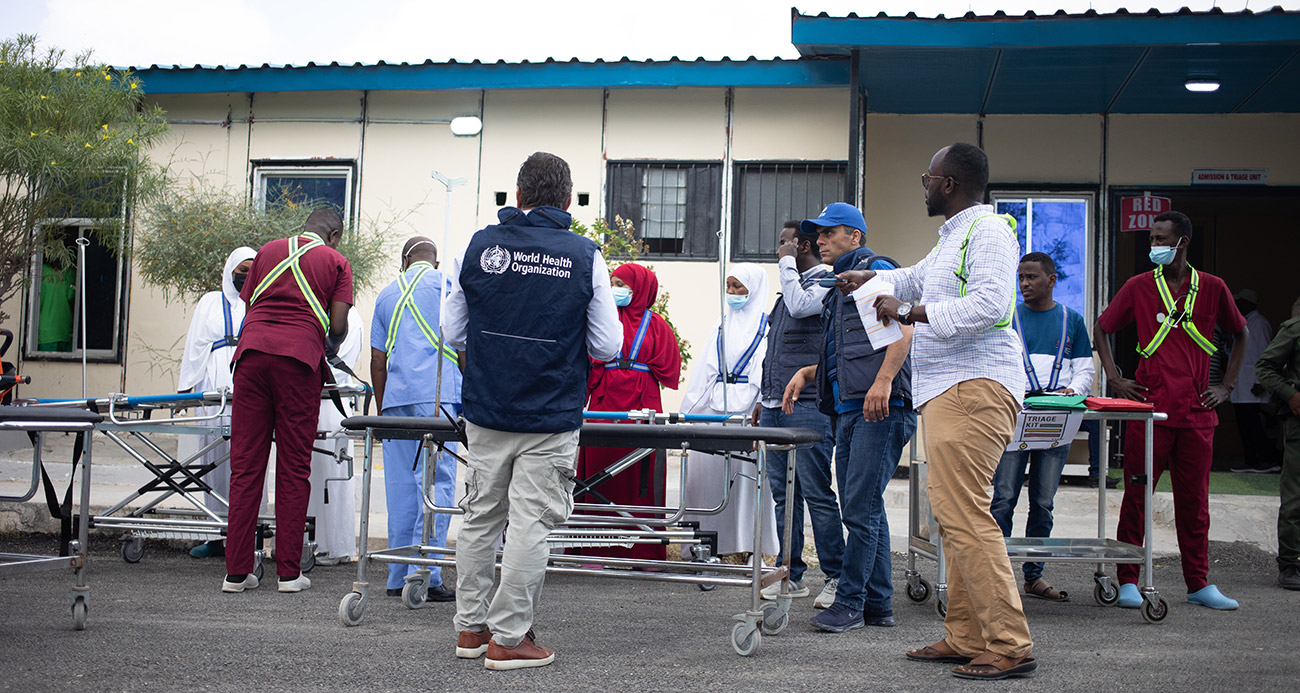 Trauma-related fatalities are on the rise in the WHO Eastern Mediterranean Region, as its countries and territories suffer ongoing conflict, escalation of violence, and natural disasters.
Trauma-related fatalities are on the rise in the WHO Eastern Mediterranean Region, as its countries and territories suffer ongoing conflict, escalation of violence, and natural disasters.
Injury death rates are nearly 3 times higher in low- and middle-income countries of the Region than in its high-income countries. Traumatic injuries are most common in fragile and conflict-affected settings. But the populations most in need of trauma care services are typically those least able to access them.
Between 60% and 80% of all trauma-related deaths in low- and middle-income countries of the Region occur before reaching the hospital, reveals a recent WHO analysis. About one quarter of these fatalities may be avoidable with basic control of haemorrhage at the time of injury.
In low-resource settings, however, prehospital services are rudimentary, and injured patients are often stabilized and even transported to hospital by family, friends or members of the public.
Articles
Saving lives and limbs: WHO scales up its trauma response in Somalia
WHO rolls out capacity-building plan for strengthening trauma care services in Somalia
WHO concludes first phase of mass casualty training in Afghanistan
WHO supports Gaza’s public hospitals to better respond to the recent escalation of hostilities
Newly established WHO Academy credits response of Somali health workers to mass casualty events
Raising Lebanon’s ability to manage mass casualty events


